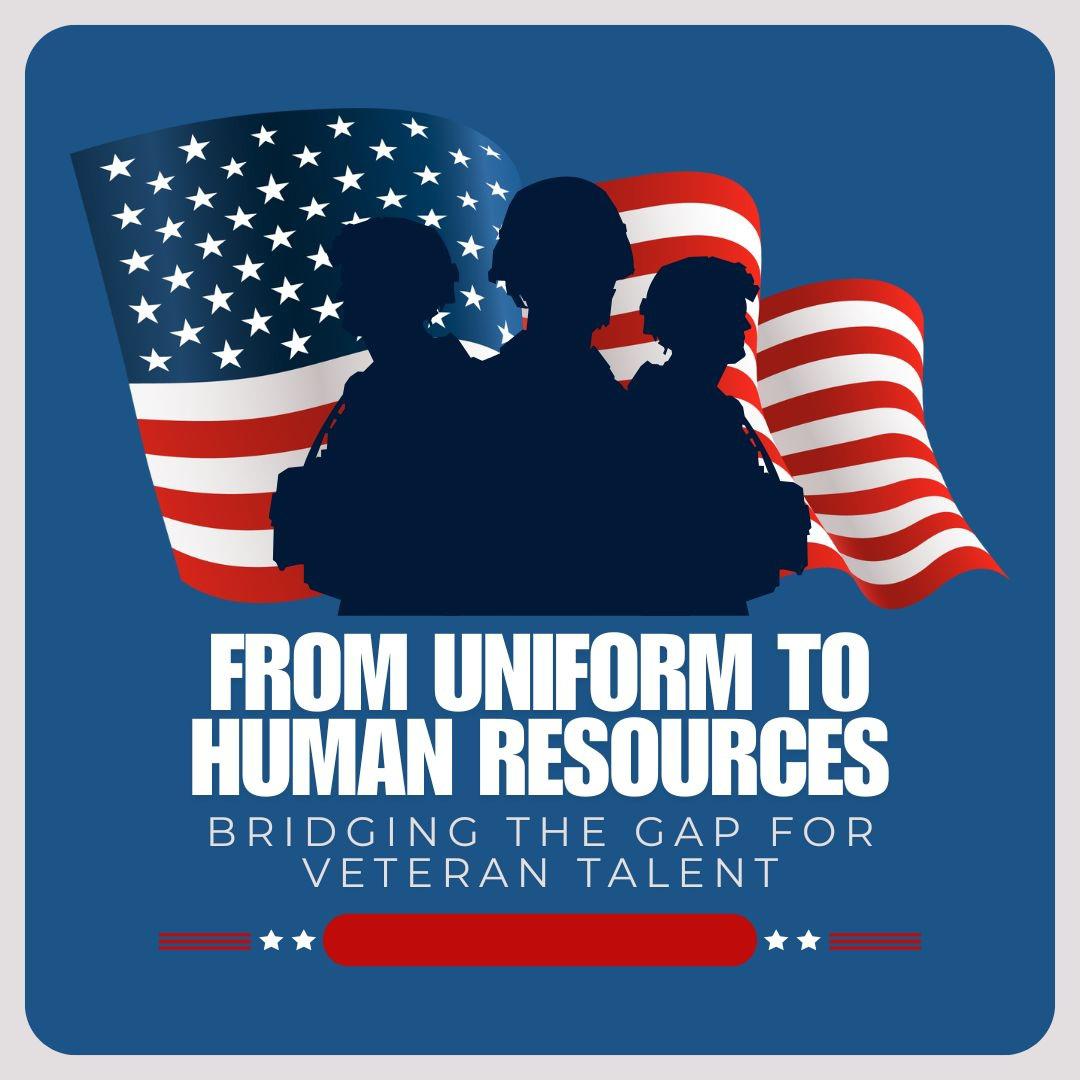
Translating Military Experience into Civilian Success
I knew I was stepping into uncharted territory when I transitioned from active duty military service into the civilian workforce. Like many veterans, I carried years of leadership experience, a strong work ethic, and diverse skills. Still, I quickly learned that civilian employers didn’t always recognize how those skills translated. Today, as an HR professional and U.S. Navy veteran, I have a unique perspective on both sides of the hiring table.
The truth is, veterans bring an incredible number of transferable skills into the workforce: leadership, discipline, adaptability, decision-making under pressure, and cross-functional team management—often developed in some of the most challenging environments imaginable. Yet despite this, veteran candidates often face bias, misconceptions, or simple misunderstandings about their abilities.
One of the most common challenges I see is that many employers struggle to connect military job roles with civilian job requirements. They may not fully understand the scope of responsibility or leadership that veterans held while serving. At the same time, many veterans find it challenging to adapt to the nuances of civilian work culture, which can feel very different from the military's structure, expectations, and communication styles.
But when organizations are willing to look beyond job titles and focus on competencies, they gain access to a highly capable and diverse talent pipeline. Veterans bring unique perspectives shaped by global experiences, resilience, and an unwavering commitment to mission success—all of which are invaluable assets in today’s business landscape.
Breaking the Bias: Misconceptions About Veteran Talent
Despite their strengths, veteran job seekers often face several forms of bias during the hiring process:
As business leaders, we must move beyond surface-level resume reviews and dig into the candidate’s experience. Often, a single military role includes leadership, project management, conflict resolution, training, and operations experience — skills that map directly to civilian leadership positions.
The Business Case for Hiring Veterans
The advantages of hiring veterans go far beyond patriotism. From a strictly business standpoint, veteran employees offer:
How Leaders Can Build More Veteran-Friendly Hiring Practices
Bringing veterans into the workforce doesn’t require major overhauls, but it does require intentionality. Here are a few ways HR teams can create more inclusive opportunities for veteran talent:
Veterans bring value—they just need the opportunity to prove it.
With a shared mindset, Envision HR can help to build your workplace culture that signals you’re a veteran-friendly employer.